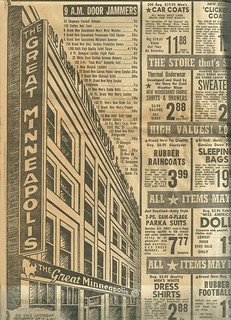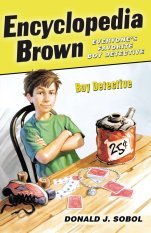This past week I had the opportunity to work on language issues with a non-native English speaking JD student who was referred to me by the student’s professor. The student, who came to the US when he was 18, is doing well in law school, but has some language-related quirks popping up in his writing that didn’t seem to be fixing themselves.

Prof. Paul Kei Matsuda
Coincidentally, the previous week I happened to attend a guest lecture by Paul Kei Matsuda, Professor of Applied Linguistics and Director of Second Language Writing at Arizona State University, who is one of the thought leaders in the field of second language writing. The main theme of his lecture was that it is essentially unfair to grade second language writers on their grammar, in the sense that language is acquired in ways and at a pace that is not necessarily within our control. He likened grading such a student on their grammar to grading them on how tall they grow before graduating.
 This point reminded me and reaffirmed for me the notion that you can’t know what you don’t know. In the case of the JD student, he (like all JD students) was advised to read his papers out loud to help him catch his errors. And this strategy was helpful to him in some ways, but not with regard to identifying errors that he didn’t know were errors.
This point reminded me and reaffirmed for me the notion that you can’t know what you don’t know. In the case of the JD student, he (like all JD students) was advised to read his papers out loud to help him catch his errors. And this strategy was helpful to him in some ways, but not with regard to identifying errors that he didn’t know were errors.
The student, in his embarrassment, actually attributed the issue to the fact that when he first came to the US, he learned a lot of English from watching videos and listening to music, and he fretted that that was a mistake since he didn’t learn proper English. I quickly pointed out to the student that this was not his fault. That his way of learning English was actually a great strategy and extremely important to his language development. I also explained the concepts of BICS (Basic Interpersonal Communication Skills) and CALP (Cognitive Academic Language Proficiency) and how it’s much harder to acquire native level proficiency in academic English, in part because the frequency of use of and exposure to CALP is simply much lower in daily life, particularly with regard to output (i.e. speaking and writing.)
 I commented that no amount of reading his writing aloud would change this. Because his ear and brain can only recognize the version of English that he knows. This explanation helped him relax a bit.
I commented that no amount of reading his writing aloud would change this. Because his ear and brain can only recognize the version of English that he knows. This explanation helped him relax a bit.
Next, I had him read his paper aloud to me so that I could assess which types of errors he could catch himself and which kinds he was not noticing. As we moved along, I began to introduce him to some strategies for the errors that he was not able to identify.
I noticed that articles, prepositions, and words with “s” endings were common issues in his writing. Sometimes he knew what sounded right, but other times he didn’t. The common denominator, I recognized, is that these are all parts of language that we as native speakers tend to learn by ear–not by studying rules–yet they are all parts of language that tend to be dropped or de-emphasized in speech which makes them harder to hear. Continue reading →
 Professor Kayalyn Marafioti, a former Restructuring Partner at Skadden Arps who has a Certificate in TESOL from The New School and teaches the Reading Legal Texts course in the St. John’s Law Advanced Legal English Certificate Program (aka ALDA), recently brought her students to sit in on a Contracts class in the law school. This is something Prof. Marafioti or I have done each year with the ALDA Certificate students in connection with the Lefkowitz v. Great Minneapolis Surplus Store case, which serves as the basis for the Reading Legal Texts course.
Professor Kayalyn Marafioti, a former Restructuring Partner at Skadden Arps who has a Certificate in TESOL from The New School and teaches the Reading Legal Texts course in the St. John’s Law Advanced Legal English Certificate Program (aka ALDA), recently brought her students to sit in on a Contracts class in the law school. This is something Prof. Marafioti or I have done each year with the ALDA Certificate students in connection with the Lefkowitz v. Great Minneapolis Surplus Store case, which serves as the basis for the Reading Legal Texts course. The idea is that, after digging into and deconstructing Lefkowitz from various angles in order to learn to read, brief, and discuss cases, students get a chance to sit in on a large Contracts class on the day that Lefkowitz is actually discussed in order to see, hear, and feel what they need to be able to do with these cases that they read.
The idea is that, after digging into and deconstructing Lefkowitz from various angles in order to learn to read, brief, and discuss cases, students get a chance to sit in on a large Contracts class on the day that Lefkowitz is actually discussed in order to see, hear, and feel what they need to be able to do with these cases that they read. StudyLegalEnglish.com
StudyLegalEnglish.com I wish I had thought of this sooner, but this semester I finally started using
I wish I had thought of this sooner, but this semester I finally started using  Next, the judge turns over each card and then renders a decision. But the fun (and culturally and linguistically interesting) part is that as the judge turns over each card, she comments on it and shares some of her reasoning out loud in order to justify her eventual decision. And while she is doing this, other players interject their own comments and reasoning in an effort to sway the judge one way or another. At the same time, they try to do it in a way that doesn’t blow their cover (or sometimes does.) (If it’s still not clear,
Next, the judge turns over each card and then renders a decision. But the fun (and culturally and linguistically interesting) part is that as the judge turns over each card, she comments on it and shares some of her reasoning out loud in order to justify her eventual decision. And while she is doing this, other players interject their own comments and reasoning in an effort to sway the judge one way or another. At the same time, they try to do it in a way that doesn’t blow their cover (or sometimes does.) (If it’s still not clear, 
 A year or two ago I saw some books left out in a box on a Brooklyn stoop for anyone to take. And from that box, I picked up the book
A year or two ago I saw some books left out in a box on a Brooklyn stoop for anyone to take. And from that box, I picked up the book  Thanks to my colleague Prof. Rebecca Lowry for passing on
Thanks to my colleague Prof. Rebecca Lowry for passing on 
 I’m a big fan of
I’m a big fan of 

 I’m very fortunate to work at a law school that not only talks the talk of LLM students as an asset but walks the walk. In that vein, thanks to some cross-program collaboration and interaction among our faculty, we recently devised an effective yet simple (and easily replicable) activity to facilitate interaction between LLM and JD students that proved eye-opening and beneficial for all involved.
I’m very fortunate to work at a law school that not only talks the talk of LLM students as an asset but walks the walk. In that vein, thanks to some cross-program collaboration and interaction among our faculty, we recently devised an effective yet simple (and easily replicable) activity to facilitate interaction between LLM and JD students that proved eye-opening and beneficial for all involved.
 This point reminded me and reaffirmed for me the notion that you can’t know what you don’t know. In the case of the JD student, he (like all JD students) was advised to read his papers out loud to help him catch his errors. And this strategy was helpful to him in some ways, but not with regard to identifying errors that he didn’t know were errors.
This point reminded me and reaffirmed for me the notion that you can’t know what you don’t know. In the case of the JD student, he (like all JD students) was advised to read his papers out loud to help him catch his errors. And this strategy was helpful to him in some ways, but not with regard to identifying errors that he didn’t know were errors. I commented that no amount of reading his writing aloud would change this. Because his ear and brain can only recognize the version of English that he knows. This explanation helped him relax a bit.
I commented that no amount of reading his writing aloud would change this. Because his ear and brain can only recognize the version of English that he knows. This explanation helped him relax a bit.